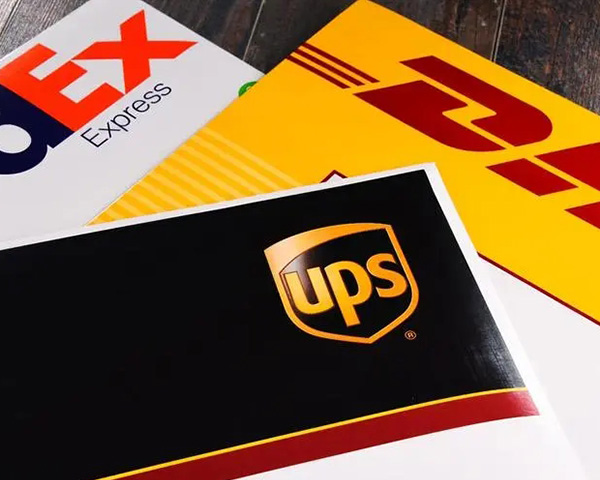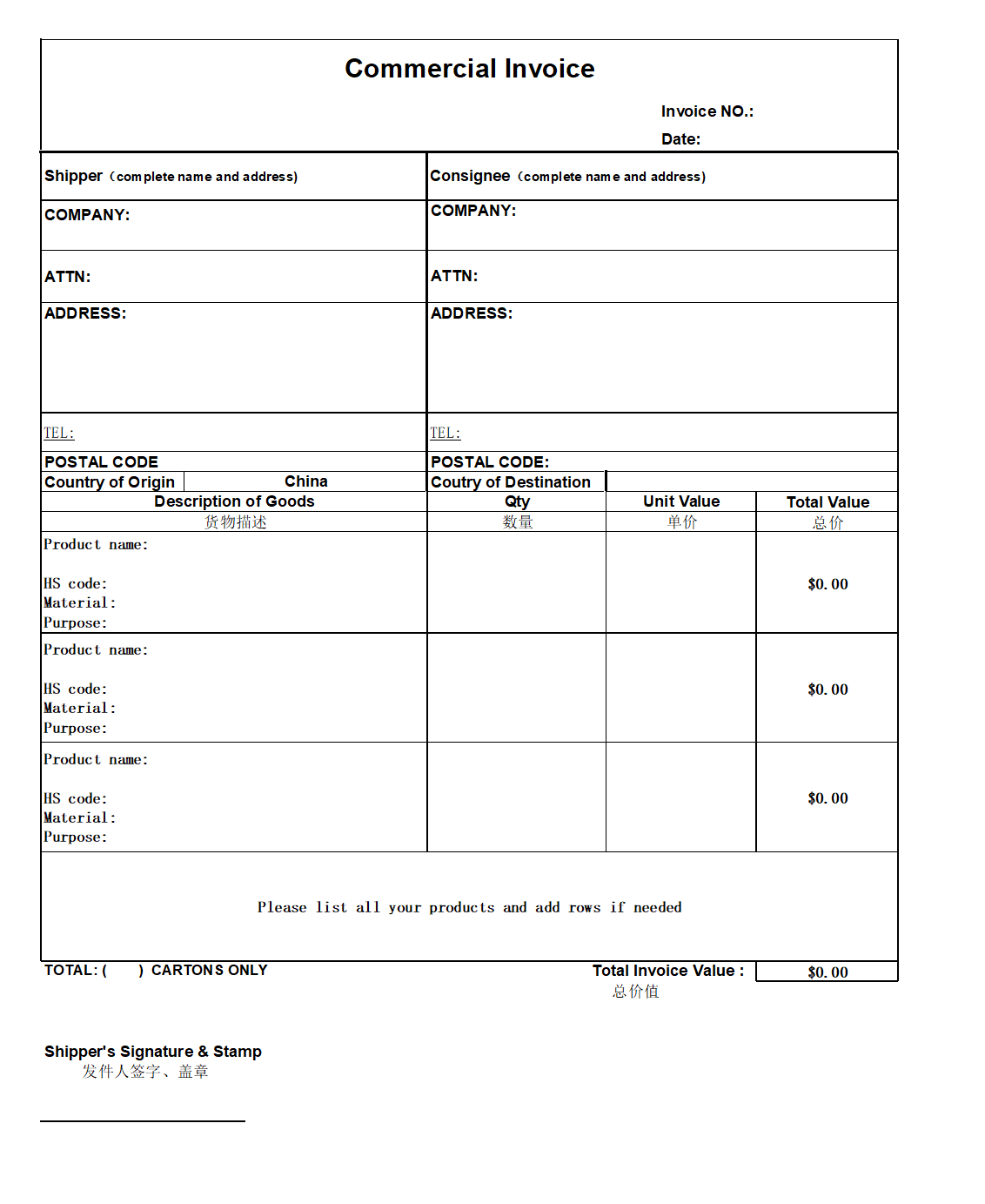This article aims to introduce relevant knowledge and techniques regarding express shipping from China. By providing comprehensive and systematic information, we hope you can better understand and know how to use express delivery services from China.
Overview of Express Shipping from China
With the rapid development of the Chinese economy and the acceleration of globalization, many businesses and individuals need shipping goods from China to destinations worldwide. Among various transportation methods, express shipping from China has become a highly regarded and widely utilized means of freight transport due to its speed, safety, and convenience.
What is express shipping from China?
Express shipping from China refers to transporting goods from China to overseas destinations through express delivery. Typically, this mode of transportation is characterized by relatively fast delivery speed and high levels of safety and reliability, making it widely used.
JIKE Note: For a free quote, please contact one of our JIKE shipping experts and they will send you a quote within 48 hours.
Major international express delivery companies
The following are currently the major international express delivery companies:
DHL
Founded in 1969, and headquartered in Bonn, Germany. DHL reaches 120,000 destinations in 220 countries and regions worldwide. It holds a market share of 36% in the Chinese market. DHL-SINOTRANS operates DHL's international courier services in China. Based on the analysis of past data, DHL has a significant advantage in delivering express shipments to the United States and Western Europe.
Advantages of DHL Express: DHL Express has a large-scale and extensive air courier network in China, covering a wide range of destinations. It provides express information services to 220 countries and regions worldwide. DHL's greatest advantage lies in its fast transit time, typically ranging from 3 to 5 working days. Additionally, it offers competitive pricing for small shipments and ensures reliable delivery timelines.
UPS
UPS Express was established in 1907 and is headquartered in Atlanta, Georgia, United States. It is a global leading logistics company that offers a wide range of solutions aimed at improving global business management speed, including package and freight transportation, facilitation of international trade, and innovative technological deployments. UPS operates a network of business outlets in over 220 countries and territories worldwide.
Advantages of UPS Express: UPS Express primarily operates within the United States and covers over 200 other countries and regions. It possesses independent air resources and can be dispatched anytime, anywhere. The company provides logistics and distribution services, including integrated supply chain management. UPS's main advantages lie in its ability to deliver to the contiguous United States within 48 hours and its fast-updating tracking system. Additionally, UPS offers cost advantages in South America and Europe compared to other regions.
FedEx
An international courier group, provides overnight delivery, ground shipping, heavy freight transportation, and logistics services. Its headquarter locates in Memphis, Tennessee, United States, and it is part of the FedEx Corporation.
On February 6, 2009, FedEx gradually began using its brand-new Asia Pacific Hub at Baiyun International Airport in Guangzhou, China. Over the next 30 years, it will become the company's central hub for the entire Asia Pacific region.
Advantages of FedEx Express: FedEx Express is a service provider specializing in freight logistics, transportation, e-commerce, and supply chain management. Its primary mode of transportation is by air. FedEx's strengths lie in handling large shipments up to 21kg. It offers competitive shipping pricing to Southeast Asia, the United States, and Europe. However, for other regions, the transportation costs tend to be higher.
TNT
Founded in 1946, and headquartered in Hoofddorp, Netherlands, TNT is one of the leading express delivery companies in Europe. In 2016, TNT was acquired by FedEx and became a subsidiary of FedEx.
These express delivery companies have extensive international networks and professional international transportation services, providing express delivery services from China to the globe. They also offer comprehensive logistics solutions such as cross-border e-commerce delivery, overseas warehousing, customs clearance, etc. In international freight transportation, freight agents and express delivery companies often cooperate to provide customers with comprehensive and high-quality freight transportation services.
Process and shipping time of express shipping from China
The process of express shipping from China typically involves the following steps:
Customers hand over their goods to the express delivery company and complete relevant documentation and declaration forms.
The express delivery company transports the goods to customs and completes customs clearance procedures.
Once the goods have cleared customs, the express delivery company transports them to a warehouse or sorting center at the destination.
At the destination warehouse or sorting center, the express delivery company sorts the goods and delivers them to the recipient.
The timetable for express shipping from China varies depending on factors such as transportation distance, the nature of the goods, and traffic conditions. Generally, transportation time from mainland China to major cities in Asia takes 2-5 days, to Europe and North America takes 3-10 days, while to South America, Africa, and Oceania, the time may be longer. Especially during important holidays, the transportation time may be extended.

Advantages of express shipping from China compared to other transportation methods
Express shipping from China has the following advantages compared to other transportation methods:
1.Fast speed: Express delivery is faster than sea freight and land transportation, enabling quick transportation and delivery of goods within a short time.
2.High flexibility: Express delivery provides door-to-door service, adapting flexibly to customers' needs like delivery address alteration, making it more convenient and efficient.
3.Tracking service: Express delivery offers real-time logistics tracking service. Just entering a tracking number, you can monitor the transportation progress and estimated arrival time of their goods, increasing the controllability of the transportation process.
4.High security: Express companies usually provide insurance services to ensure the safety of goods during transportation. Additionally, they often perform packaging inspections and security scans to ensure the integrity of the goods. You can claim and ask for compensation if goods are lost or damaged.
5.Transparent cost: Express delivery costs are usually more transparent than other transportation methods. Customers can know the specific costs and required delivery time when ordering, avoiding additional costs and time unpredictability.
6.Efficient customs clearance: Express delivery companies usually have efficient customs clearance capabilities, assisting you in quickly completing import and export customs clearance procedures.
Disadvantages of express shipping from China
The disadvantages of express shipping from China are as follows:
1. Restrictions on types of goods: Some goods are prohibited or restricted by express delivery. This can be a limiting factor for certain businesses and industries, such as batteries, food, liquid, etc.
2. Higher cost: Express delivery costs are usually higher than other transportation methods. Especially for larger or heavier goods, the cost of express delivery may exceed the budget.
3. Weight and size limitations: Express companies often have weight and size restrictions, which may limit transportation or increase the costs of certain goods. At the same time, the Volume to Weight ratio in air freight is 1:167, while at express is generally 1:200, which means that express companies charge more in volume for the volume weight aspect.
Professional terminology in express shipping from China
There are many professional terminologies involved in express shipping from China. Here are some common ones:
Shipper: Refers to the customer or company that entrusts the express delivery company to transport the goods.
Consignee: Refers to the final recipient or company of the express goods.
Express Waybill: It is a label between the express delivery company and the shipper, which includes information such as the FROM(shipper/sender), the TO(consignee), content (product name), quantity, weight, tracking number, barcodes and reference number. We can easily find the delivery address on the label.
Insurance fee: The cost of insurance purchased by the shipper to protect against accidental losses during transportation, based on the value of the goods.
Customs clearance: The declaration, inspection, and taxation procedures for import and export goods after they arrive at the destination customs.
Customs duties: The taxes and fees that must be paid during customs clearance for imported goods, including customs duties, value-added tax, consumption tax, etc.
Bill of Lading: One of the necessary documents for ocean freight, including information such as the quantity, weight, dimensions, packaging, port of loading, port of discharge, etc., of the goods.
Express Facility:It refers to a physical location or facility designed and equipped for handling express shipments and providing express delivery services. These are operated by express delivery companies such as FedEx, UPS, and DHL. They are equipped with various resources and infrastructure to efficiently handle the sorting, scanning, processing, and transportation of express shipments.
These are some common professional terminologies involved in express shipping from China. Compared to other modes of transport, Professional Terminology in Express Shipping is the simplest and easiest to understand.
Types of goods transported through express shipping via Jike
Jike is the agent of DHL, FedEx and UPS. We ship many products from China to the globe every day. The main types of goods transported through express shipping by JIKE include but are not limited to the following:
Documents: Including documents like letters, original bills of lading, receipt, etc.
Electronic products: Including mobile phones, Pads, computer accessories, cameras, headphones, VR glasses, etc.
Fashion accessories: Including handbags, scarves, hats, belts, sunglasses, etc.
Home goods: Including home decorations, taps, cleaning supplies, etc.
Mechanical equipment: Including mechanical parts, instruments, motors, electrical appliances, game machines, etc. Most of these products are packed in wooden cases.
It is important to note that some goods, like air compressors, ping-pong balls, guns, and copy bags, cannot be transported through express delivery due to their nature or regulatory restrictions. We will discuss it below.
Prohibited Items for Chinese express delivery
As an importer, you need to be aware of prohibited items to avoid losses when arranging express delivery from China. Here are some examples of prohibited items for express delivery:
Flammable, explosive, toxic, and hazardous materials: Examples include matches, gunpowder, aerosols, pesticides, drugs, etc.
Weapons, firearms, and their accessories: This includes handguns, rifles, ammunition, explosives, etc.
Animals and plants and their products: This includes wildlife, animal skins/fur, ivory, rhino horns, coral, etc.
Liquids, gases, valuable items: Examples include liquid metals, jewelry, precious metals, etc.
Counterfeit products, pirated items, counterfeit currency: Examples include pirated DVDs, counterfeit products, currency, etc.
Prohibited books, obscene materials: Examples include obscene publications, pornographic audiovisual products, etc.
The above examples are just some instances, and the list of prohibited items for Chinese express delivery is extensive. If you want to know if your product is acceptable, you can consult Jike’s expert. We will tell you the relevant regulations for the products you want to ship. And make appropriate arrangements for the transportation of goods. You can also consult relevant authorities or local customs for information and confirmation if there are any doubts.

Necessary documents for express shipping from China
Invoice
This is the most important document for transporting goods and includes detailed information such as quantity, value, and description of the goods. It is used for customs clearance and taxation purposes.
To most countries, this is the only needed document for goods exported from China.

Below are the other documents if needed.
Certificate of Origin: The Certificate of Origin is used to confirm the origin of the goods, which is important for enjoying certain special tariff preferences and trade agreements. Some countries and places request it. For example, a Certificate of origin is required for all goods sent to the Canary Islands, regardless of the size of the goods (except for documents). And for Australia and Chile, if you have CO, it can save you taxes.
Packing List: Some countries, such as Taiwan UPS, need Packing lists. This document provides a detailed record of the goods being shipped, including information such as the name of the goods, quantity, packaging method, weight, etc.
Payment proof: Please pay attention to the value shown on your invoice. If customs think that the value of the good is fake to avoid your taxes and duties, then you need to provide payment proof to certify that you do not declare it at a low level. DHL Hong Kong will strictly check all parcels exported to Europe. Some freight forwarders' systems will automatically determine whether it is a low declaration; for example, a total declared price below 50 USD is considered a low declaration. The total declared cost of a single shipment shall be at least 50 USD. If the total declared price of a single shipment is higher than USD 50, then the unit price shall not be lower than 10 USD/KG. In addition, shipments to all European countries via DHL Hong Kong agency channels are advised to provide an actual "proof of sale transaction" or "proof of value." Shipments might be returned to the Hong Kong DHL facility if they are not authentic or cannot be provided. If so, the resulting operation fees might be borne by you.
Transporting goods from China requires certain necessary documents and certificates, including but not limited to the above. If customs clearance needs other paper works, we need to provide for special goods such as chemicals, agricultural products, pharmaceuticals, etc.
According to customs regulations, here are some document requirements and regulations specified by customs:
All documents must be clear, complete, true, and accurate (for unite price, only two decimal places); otherwise, customs may reject them.
All documents must be written in English.
All documents would be better if signed and stamped with an official seal or company stamp.
Additional documents and certificates may be required
Packaging and labeling requirements
Packaging materials like cardboard boxes, wooden crates, plastic films, etc. should comply with international and domestic standards. Packaging standards include the packaging boxes' dimensions, strength, and sealing. You and the exporter must select suitable packaging material and criteria based on the goods' size, weight, transportation mode, and other characteristics, to protect the goods and reduce the risk of damage and loss.
For example, if we send something very fragile, like mirrors, we need to repack them into hard wooden cases; if we send batteries, then we need to pack them into UN boxes and stick the battery label on the outer boxes; if we send documents, we need to pack them into an official express envelope.
Below information Packaging and Labeling for Special Goods lists more details.
1. Hazardous Goods: Packaging and labeling for hazardous goods should comply with international and domestic standards, such as the United Nations' classification and packaging regulations for dangerous goods. Freight forwarding agents must select appropriate packaging and labeling based on the category and nature of the hazardous goods.
2. Fragile Goods: Packaging and labeling for fragile goods should comply with international and domestic standards, such as special packaging and cushioning materials. Freight forwarding agents must choose suitable packaging and labeling based on the nature and characteristics of fragile goods.
3. Temperature-Controlled Goods: Packaging and labeling for temperature-controlled goods should comply with international and domestic standards, such as insulated boxes, refrigerated containers, or temperature recorders. We must select appropriate packaging and labeling based on the characteristics of temperature-controlled goods.
For more inforamation, you can visit this article: International Packaging Services
Customs clearance and taxation Issues
Customs clearance and taxation issues in express shipping from China are of particular concern to freight forwarding agents, as they directly affect the smooth customs clearance and the amount of customs duties and taxes to be paid. Here is a detailed explanation:
1. Customs Clearance Procedures and Processes:
During the express delivery process from China, the import and export of goods must be supervised and reviewed by Chinese customs. Generally, the customs clearance procedures include the following steps:
Declaration: Freight forwarding agents must submit import and export declaration forms and relevant supporting documents to the customs, such as invoices, packing lists, and bills of lading.
Examination: Customs will review the declaration forms and supporting documents to verify the accuracy and authenticity of the goods' descriptions, quantities, values, etc.
Inspection: If customs deem it necessary to inspect the goods, they will conduct on-site inspections, including physical and X-ray screenings.
Release: After passing the customs review and inspection, the goods will receive a release notice and can proceed to the next transportation stage.
2. Calculation of Customs Duties and Taxes:
During customs clearance, goods are subject to customs duties and other related taxes. Customs duties are the basic taxes imposed on imported goods and are calculated based on the rates specified by the country. The customs duty rates vary depending on the classification of the goods.
In addition, imported goods are also subject to value-added tax (VAT) and consumption tax, which are calculated based on the taxable amount of the goods. Furthermore, if the value of the goods exceeds a certain threshold, an import VAT is also levied.
For details information, you can visit your country customs website to check. You can also check our Guideline to our Country.
3. Payment of Customs Duties and Taxes:
During customs clearance, customs duties and other taxes are borne and paid by the consignee or freight forwarding agent. The payment methods and timing can be determined based on the customs clearance agreement and contract. Generally, after the goods are released, the customs will issue a tax payment notice to the express agent or the consignee, requesting the payment of the relevant taxes within a specified period. The payment process can be completed through banks or the designated tax payment platforms specified by customs.
If you think Express charges you too much tax, you can check the tax bill in the breakdown.

How to resolve issues encountered in express shipping from China?
In Chinese express delivery, various issues may arise, including logistics delays, losses, customs duties and clearance issues, and item damage and loss. Here are some methods to resolve these problems:
1. Logistics delays and losses
If there is a delay or loss of an express package, the first step is to contact the customer service of the express delivery company to inquire about the latest status of the package. If the issue cannot be resolved, consider applying for compensation. It is important to note that the compensation policies vary among different express delivery companies, and specific details should be checked on the company's website or consulted with their customer service.
2. Customs duties and clearance issues
Customs duties and clearance issues are common in Chinese express delivery. You can consult a professional freight forwarding company if you receive a notification requiring payment of customs duties or clearance procedures. They can assist you in understanding the clearance and customs duty procedures and how to make the payment. You can also inquire with the express delivery company for relevant information regarding their clearance process and policies.
3. Item damage and loss
If you receive an express package that is damaged or missing items, you need to contact the express delivery company for resolution promptly. You can request compensation or a refund from the company. However, it is important to note that express delivery companies have limits on item valuation for compensation, and the specific amount should be checked based on the company's insurance policies. You can also consult a freight forwarding company for related issues and choose an appropriate insurance plan for your goods.
In summary, when encountering issues in Chinese express delivery, it is best to promptly contact the customer service of the express delivery company to resolve the problem. If the issue cannot be adequately resolved, you can seek advice from a professional freight forwarding company and choose an appropriate solution.
International trade terms used in express delivery
The following are commonly used trade terms in express delivery from China:
Ex Works (EXW) | The seller delivers the goods at their factory to the buyer's designated express delivery courier; the seller is not responsible for any costs or liabilities. The buyer assumes all express's costs. |
Delivered at Place (DAP) | The seller is responsible for delivering the goods by express to the buyer's specified location, but it does not include paying the relevant taxes. The buyer needs to complete customs clearance procedures and pay all relevant taxes to the express. |
Delivered Duty Paid (DDP) | Delivered Duty Paid (DDP): The seller is responsible for delivering the goods by express to the buyer's specified location, including completing customs clearance procedures and paying all relevant taxes. The seller bears all costs and liabilities until the shipments are delivered to the buyer. |

Why JIKE is the best choice for Chinese express delivery services
Global coverage and fast shipping: JIKE has established a vast logistics network and partnerships with internationally renowned express delivery companies. We can provide fast shipping services worldwide and offer customized logistics solutions and expedited delivery options.
Reliability and stability: JIKE has a well-established operational process and management system to ensure quality and safety during transportation. Regular updates on shipping status and real-time information allow you to track your shipments.
Efficient transportation and service quality: With a professional team, including logistics experts and customer service representatives, JIKE delivers efficient services such as logistics planning, transportation arrangements, cargo insurance, and customer support to meet customer needs.
Transparent pricing and flexible payment options: JIKE offers transparent pricing, allowing customers to choose different services and payment methods according to your needs, including T/T, L/C, Alipay, Apple Pay, etc
Express shipping service is crucial in e-commerce and international trade, offering fast and convenient logistics services. However, certain issues are to be mindful of, such as prohibited and restricted items, customs clearance, and item damage or loss. When choosing a Chinese express delivery company, you should consider company size and background, service quality and reputation, logistics network coverage, logistics costs and service fees.
As a leading agent in Chinese express delivery services, JIKE possesses a comprehensive logistics network and efficient service system, providing customers with comprehensive express delivery services. In the future, JIKE will continue to focus on improving service quality and customer satisfaction, making greater contributions to developing express shipping from China.
Whatever you want to ship, Jike is here to help.
FAQ
Provided below are several frequently asked questions along with their corresponding answers:
| Q: How long does it take for Chinese express delivery? |
| A: The delivery time for Chinese express delivery depends on various factors such as the origin and destination, the express delivery company, the mode of transportation, and the distance. Express shipping from China to major cities typically takes 3-10 business days. |
| Q: How is the cost of express delivery calculated? |
| A: The cost of express delivery is typically calculated based on factors such as the weight, volume, destination, mode of transportation, and service level of the package. Generally, the farther the distance, the larger or heavier the package, the higher the cost. Additionally, different express delivery companies and service levels may have different fees. |
| Q: How can I track and trace my express delivery? |
| A: Most express delivery companies provide online platforms and mobile applications that allow easy tracking and tracing of express shipments. you can enter the tracking number to view the shipment status and estimated delivery time. Additionally, customers can communicate with the express delivery company through customer service hotlines, online chats, and other channels. |
| Q: How do I choose the right express delivery company? |
| A: Selecting the right express delivery company involves considering several factors such as company size and background, service quality and reputation, logistics network coverage, and logistics costs and service fees. Customers must make a comprehensive assessment and comparison based on their needs and circumstances. |


Consult Our Experts